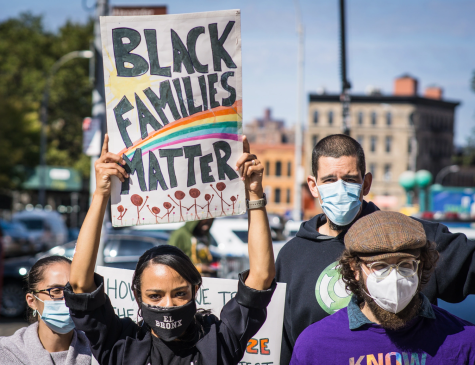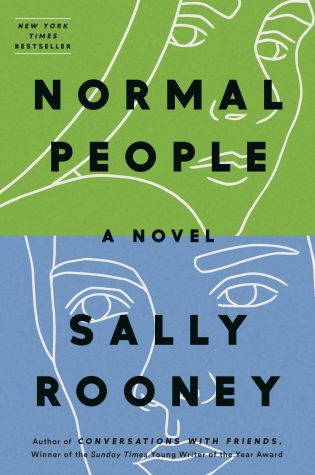No Attention to Race
The racial divide in the U.S. continues to spread and it must be addressed
September 7, 2022
Racial inequalities continue to exist in today’s society and further the divide between race and social status. From healthcare to education, poverty to incarceration, unemployment rates to the racial wealth gap, a lack of attention to these issues is one reason why minorities continue to struggle in both society and the economy.
There is a clear deficiency in mainstream media coverage of the income gap in America, especially as it directly relates to and affects minorities. Black Americans, in particular, are at the forefront of the issue and seem to receive no help.
Why should we care?
The income gap is not just a pay disparity, it is a social justice issue. Mainstream news outlets, primarily funded by corporate elites, tend to overlook the fact that this is a racial issue. This is wrong. It should not be characterized as “rich versus poor” or “wealthy versus the less fortunate.” The U.S. political world has put media corporations against a wall, causing them to withhold reporting the truth. Media coverage on this issue is necessary to achieve justice and shine light on the lack of opportunity for minorities, which was especially evident throughout the coronavirus pandemic.
The Facts
In 2019, the U.S. Census reported that Black Americans brought in a median household income of only $45,438. This was the lowest median household income of any race including Hispanic, Asian, and white Americans. Meanwhile, white Americans brought in a median household income of $76,057 in 2019.
It is no coincidence that earnings align with opportunities. As technological advancements continue to improve, employment requirements in the workforce increase as well. This means more and more jobs require various skills or higher education, which minorities and those in low-income communities do not always have the ability to access.
These disparities are not minimal. Race is an incredible part of this crisis and though the responsibility is not solely on one person or a group, the media has not demonstrated commitment to this issue, despite the ability to promote and encourage change for the better.
The Media
In analyzing a wide array of media coverage, it is evident that both liberal and conservative media corporations, including CNN and FOX, willfully refused to tie racial inequality to the income gap.
Specifically, CNN’s coverage on the income gap throughout the pandemic focuses on the wealth aspect rather than race. Similarly, FOX news coverage did the same, albeit the network went a step further and classified billionaires as the “targets” in the U.S. wealth gap. Their coverage focused on the detriment of placing higher taxes on higher class individuals and offered no solution as to how minorities and those suffering the most could improve financially.
On the other hand, coverage from The Center for American Progress — a popular policy think tank — took a different approach. As an independent, non-partisan organization, CAP was able to address challenges with the Black-White wealth gap in the U.S. and propose solutions to improve the crisis.
“Public and private policies need to be regularly revisited and revamped to eliminate racial biases that systematically disadvantage Black households. Without large, long-term investments in addressing the Black-White wealth gap, massive differences in economic security and opportunity will not only continue to persist but may widen for generations” said CAP Senior Fellow, Christian E. Well.
When comparing and contrasting a variety of media on the income gap, it was clear that corporate media organizations have lacked the ability to connect the issue with racial inequalities and leave stakeholders voices out of any coverage.
Reasons for the Problem
Black Americans and minorities struggle to find well-paying jobs because of a lack of higher education. Sustainable policies that enable access to achieve a college degree is essential to reach economic equality and success in the workforce. Whether it be debt forgiveness, free community college, or easier access to loan programs, something must be done.
The racial wealth gap in America can only be resolved collectively. Addressing this issue falls in the hands of the media, who have a great responsibility to inform the public. To evoke change and achieve justice, mainstream media coverage must first admit this is an issue involving race.
The media must acknowledge that the U.S. wealth gap includes a divide between races. Our society will not take the next step in resolving this crisis until this is done.
The opinions expressed in this article are those of the contributing authors. They do not purport to reflect the opinions or views of the Pioneer Newspaper or its editorial staff.
















